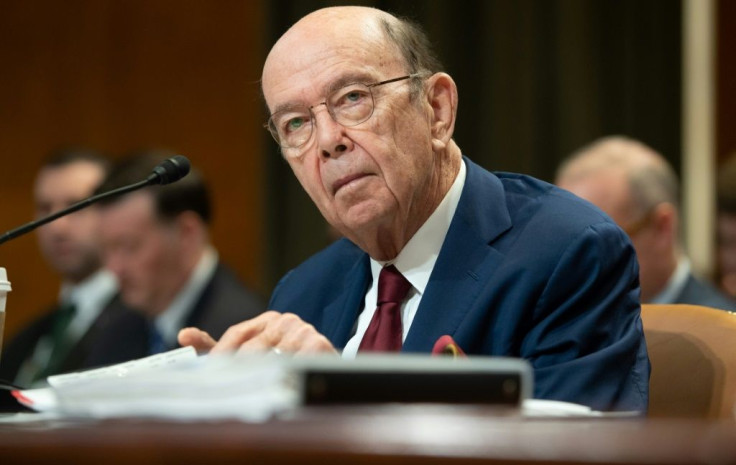US Issues New Sanctions Against Chinese Companies For Alleged Human Rights Abuses In Xinjiang Region

KEY POINTS
- The Commerce Department imposed sanctions on 11 Chinese companies for alleged human rights violations in the region of Xinjiang
- Nike, Apple and Calvin Klein are among 83 "global brands" with reported links to the companies
- China has defended its crackdown in the region, saying it has done so to stomp out any Muslim extremists in the population
The U.S. on Tuesday upped tensions with China, imposing sanctions on 11 Chinese companies for alleged human rights abuses in the Xinjiang region of northwest China.
The U.S. Department of Commerce filed the sanctions blocking the companies from buying U.S. technology and other goods for allegedly employing “forced labor involving Uyghurs and other Muslim minority groups.” Secretary of Commerce Wilbur Ross said the sanctions would ensure U.S. goods don’t go toward further persecution.
“Beijing actively promotes the reprehensible practice of forced labor and abusive DNA collection and analysis schemes to repress its citizens,” Ross said in a press release. “This action will ensure that our goods and technologies are not used in the Chinese Communist Party’s despicable offensive against defenseless Muslim minority populations.”
The 11 companies listed by the Department of Commerce are:
- Changji Esquel Textile Co. Ltd.
- Hefei Bitland Information Technology Co. Ltd.
- Hefei Meiling Co. Ltd.
- Hetian Haolin Hair Accessories Co. Ltd.
- Hetian Taida Apparel Co., Ltd.
- KTK Group
- Nanjing Synergy Textiles Co. Ltd.
- Nanchang O-Film Tech
- Tanyuan Technology Co. Ltd
- Xinjiang Silk Road BGI
- Beijing Liuhe BGI
“At least 83 well-known global brands in the technology, clothing and automotive sectors” are known to have links to the 11 companies, according to a report released in June 2020. Three of those “global brands” in the report include Nike, Apple and Calvin Klein.
However, Chinese officials have repeatedly defended any alleged abuses in the region as “necessary” to stomp out bubbling extremism among the region’s Turkish population.
“The U.S. abuses export control measures under the pretext of so-called human rights,” China's Ministry of Foreign Affairs spokesperson Wang Wenbin said in a press release. “This violates the basic norms of international relations, interferes in China's internal affairs, and harms China's interests.”
The U.S. State Department estimates around 2 million Muslims living in Xinjiang have been imprisoned in “re-education camps” as part of a crackdown in the region by Chinese leadership.
© Copyright IBTimes 2025. All rights reserved.





















